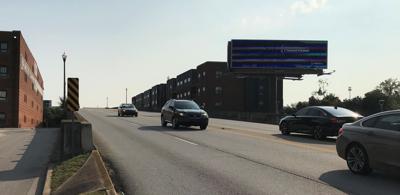Apartment buildings are the new weeds of Columbia — popping up constantly, growing like crazy, hard to kill.
Some people like the trend, including Mayor Steve Benjamin, who blesses every new apartment project as an expansion of the tax base.
Some people hate it, including the University Hill Neighborhood Association, which has filed a lawsuit against the city over its approval of a new eight-story apartment building on Pickens Street, which they say will dwarf their homes and negatively impact the historic neighborhood.
And some people don’t know what to think, including the city’s Design/Development Review Commission, which unanimously rejected the proposed University Hill project due to its height and mass, only to unanimously approve it a few months later with no changes to its height and mass.
From Main Street to the Vista, down Assembly to Olympia, on to Five Points and anywhere else land is or can be made available, apartment complexes have been going up one after another in Columbia for more than a decade.
In terms of design, building materials, etc., some are nice additions, some are typically bland, and some are eyesores.
Regardless, virtually all of the new apartment construction over the past decade has been geared toward providing student housing. That’s fine (economically at least) until the student housing boom goes bust.
That could happen due to COVID-19 (the University of South Carolina is already projecting 3,500 fewer students this fall); or the outrageous cost of higher education today (and the outrageous student loan debt that goes with it); or the realization that the traditional college education is sometimes not the advantage it used to be for young people in today’s fast-changing digital world.
In any case, the in-residence college enrollment model will likely decline in the years ahead.
And so will the need for all those student apartment complexes. Then what?
I agree with Mayor Benjamin that Columbia’s pitiful property tax base (some 60 percent of the city’s real estate is tax-exempt) means new tax-paying development is needed. But I also think we should be smart enough to know when reasonable limits are reached in any sector.
In the world of economics, it’s called a bubble. And if you keep puffing, eventually the bubble always bursts, leaving chaos, debt and decline.
But to me, it’s not just the economics of it. It’s also what you’re doing with the city’s history and the physical links to our past. Old buildings matter, and I say restore every damn one of them you can into apartments, offices, restaurants etc.
So while I either don’t care about or may oppose other new apartment construction in the downtown area, I favor any restoration of old buildings into apartments.
And when it comes to transitioning Columbia’s old buildings into apartments, no one has done it more or better than Scott Garvin.
The noted local architect turned the massive, beautiful and abandoned Granby and Olympia Mills into highly successful student apartments, a project that saved us from destroying an important part of our history.
Then he did the same with the historic Palmetto Compress Warehouse (which some said couldn’t be done when they wanted it torn down), putting another important building from our city’s past back into play.
Garvin recently announced a new project, converting twin century-old Italianate buildings in the Vista at 1209 and 1211 Gadsden Street into apartments to be called Gadsden Place. In a smart nod to the growing work-at-home sector, each apartment will include a ground-floor office. And a roof deck too.
The 1211 Gadsden St. building was the first Vista home for Marvin Chernoff’s ad agency. He would later restore and occupy two other Vista buildings, continuing to pioneer the district.
I worked for Marvin at 1211 Gadsden from 1978 to 1984, a time that was the start of good things to come for the budding Vista district. The building holds many memories for me, and I’m delighted to know it’s going to continue its life into a second century as cool new apartments in a cool old building.
And I know Marvin would love it.
Fisher is president of Fisher Communications, a Columbia advertising and public relations firm. He is active in local issues involving the arts, conservation, business and politics.








